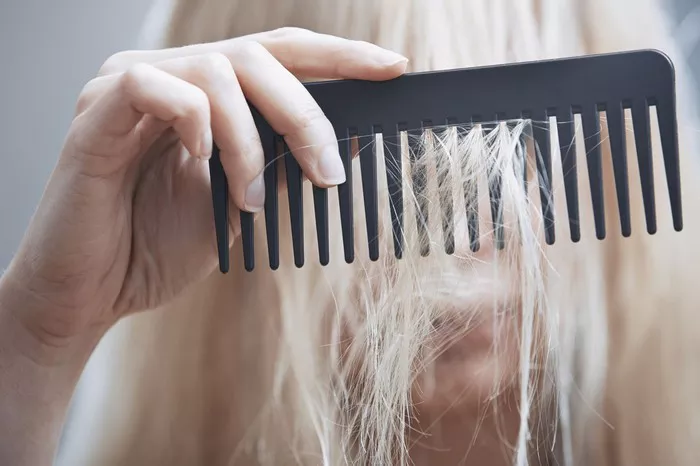Testosterone therapy is commonly prescribed for individuals with low testosterone levels. While it can have numerous positive effects, one potential side effect is hair loss or thinning. The hormonal changes induced by testosterone can disrupt the natural hair growth cycle and lead to hair loss in both men and women. However, with proper care and a few preventive measures, you can minimize or even prevent hair loss while undergoing testosterone treatment. In this article, we will explore various strategies that can help you maintain healthy hair growth while taking testosterone.
Understand the Mechanism of Testosterone-Related Hair Loss:
Before diving into prevention methods, it’s crucial to understand why testosterone therapy can affect hair growth. Testosterone converts to dihydrotestosterone (DHT) via an enzyme called 5-alpha reductase. DHT binds to hair follicles and causes miniaturization, leading to weaker and thinner strands. Additionally, DHT can shorten the hair growth phase, resulting in a shorter lifespan for individual hairs.
Consult with a Healthcare Professional:
When considering testosterone therapy, consulting with a healthcare professional specializing in hormone replacement therapy (HRT) is essential. They can assess your overall health, evaluate your testosterone levels, and guide you through the potential side effects, including hair loss. A qualified professional can provide personalized recommendations and monitor your progress throughout the treatment.
Optimize Your Diet:
A nutrient-rich diet plays a vital role in maintaining healthy hair growth. Include foods that are rich in vitamins A, C, D, and E, as well as biotin, zinc, and iron. These nutrients support hair follicle health and promote stronger and thicker hair. Foods such as leafy greens, eggs, salmon, nuts, seeds, and legumes should be incorporated into your daily diet.
Manage Stress Levels:
Excessive stress can contribute to hair loss. Testosterone therapy may already put some stress on your body, so it’s essential to manage external stressors effectively. Engage in stress-reducing activities such as exercise, meditation, deep breathing exercises, and hobbies that bring you joy. Getting an adequate amount of sleep is also crucial for maintaining overall health, including healthy hair growth.
Use Haircare Products Specifically Designed for Hair Loss Prevention:
Several haircare products are formulated to prevent hair loss and promote hair growth. Look for shampoos, conditioners, and treatments containing ingredients like ketoconazole, saw palmetto, biotin, and caffeine. These ingredients have shown potential in reducing DHT levels, stimulating hair follicles, and improving overall hair health. Remember to follow the instructions provided by the product manufacturers for optimal results.
Gently Care for Your Hair:
To minimize hair breakage and maintain a healthy scalp, adopt proper hair care practices. Avoid excessive heat styling tools, harsh chemical treatments, and tight hairstyles that can cause tension on the hair follicles. Instead, opt for gentle hair care routines, using wide-toothed combs or brushes to detangle wet hair and avoiding vigorous towel drying. Additionally, regular scalp massages stimulate blood flow to the hair follicles, promoting healthy hair growth.
Consider Supplemental Treatments:
In some cases, healthcare professionals may recommend supplemental treatments to complement testosterone therapy and prevent hair loss. These treatments can include medication such as finasteride or minoxidil. Finasteride works by blocking the conversion of testosterone into DHT, while minoxidil promotes hair growth by extending the hair growth phase. However, these treatments should only be used under the supervision of a healthcare professional.
Monitor Hormone Levels Regularly:
Regular monitoring of hormone levels is crucial during testosterone therapy. By keeping your testosterone levels within the optimal range, you can minimize potential side effects, including hair loss. Work closely with your healthcare professional to determine the appropriate dosage and frequency of testosterone administration.
Conclusion:
While hair loss can be a concern during testosterone therapy, it is possible to prevent or minimize this side effect using various strategies. By understanding the mechanism of hair loss related to testosterone, consulting with healthcare professionals, optimizing your diet, managing stress levels, using appropriate haircare products, practicing gentle hair care routines, considering supplemental treatments, and monitoring hormone levels regularly, you can maintain healthy hair growth while undergoing testosterone therapy. Remember that individual results may vary, and it’s crucial to consult with a qualified healthcare professional for personalized advice and guidance throughout your treatment journey.


